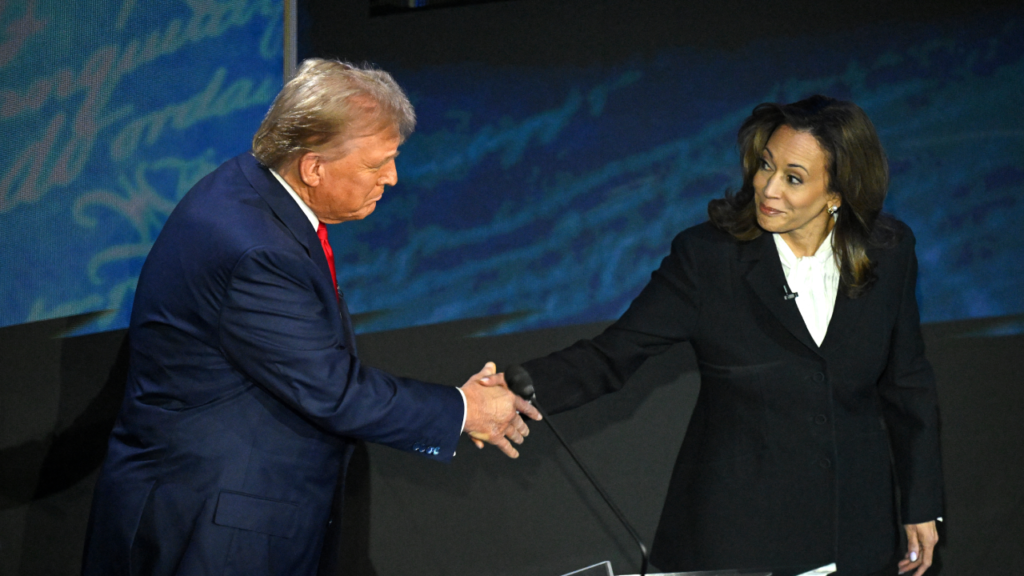Key insights
- Eliminating taxes on tips would allow workers to take home more pay, possibly easing the labor shortage and increasing employee satisfaction.
- How getting rid of taxes will impact state income tax, Social Security and Medicare is unclear, possibly presenting a weak point.
- No taxes on tips may not ease negative customer sentiment around tipping.
Eliminating income taxes on customer tips to workers, a promise that both Kamala Harris and Donald Trump have made during this presidential campaign, could have a wide-reaching impact for both tipped workers and many of the businesses that employ them.
Tips, as defined by the IRS, are additional and discretionary payments made by customers to an employee. Tips can include cash and electronic payments as well as noncash items of value, such as tickets.
Tips can make up the bulk of pay for certain workers, such as servers, hospitality workers and entertainers. All tips are counted as income by the IRS, and are subject to federal and state taxes.
During a June 2024 rally in Las Vegas, Trump proposed eliminating taxes on tips for “hotel workers and people that get tips,” adding, “we are going to not charge taxes on… people making tips.”
Harris, in her own Vegas rally in August 2024, similarly promised ending taxes on tips, alongside raising the minimum wage for tipped workers.
“It is my promise to everyone here that, when I am president, we will continue our fight for working families of America, including to raise the minimum wage and eliminate taxes on tips for service and hospitality workers,” Harris said.
While neither candidate has clarified exactly how the tax would be eliminated, the proposal could be enacted by creating a tax exemption for tips or an above-the-line deduction as Texas Senator Ted Cruz recently proposed.
How eliminating taxes on tips could impact small businesses
Tipped workers make up about 2.5 percent of the workforce, according to the Budget Lab at Yale. Servers, bartenders and other tipped workers can be paid a national subminimum wage of $2.13 per hour, with the expectation that they will make more in tips.
With that said, getting rid of taxes on tips has both upsides and downsides.
Pro: More take home pay for workers without a raise
While more businesses are paying minimum wage and above for their employees and making tips optional, many businesses still rely on the tipping model in order to pay their employees and attract workers.
Eliminating a tax on tips would allow employees to take home more pay, giving them more cash in their pocket, and possibly decreasing the need for business owners to raise tipped employee wages. This can also possibly increase employee satisfaction and financial security.
Pro: Easing worker shortages
With a possibly larger take-home paycheck, businesses may also have an easier time recruiting tipped employees than salaried or hourly employees. Many industries that rely on tipped service and hospitality workers have had difficulty recruiting employees, as 1 in 4 workers (24 percent) say they do not feel like they’re fairly compensated, according to Bankrate’s Paycheck to Paycheck Survey.
Con: Negative customer sentiment around tips
Bankrate’s Tipping Survey found that 3 in 5 Americans (59 percent) express negative views of tipping and 37 percent say that business owners should pay their employees better wages instead of relying on tips. Taken together, the survey findings suggest that eliminating income taxes on tips could backfire. If customers believe there is less of a tax burden on tipped employees, they may tip less in order to save money.
Con: State tax, Social Security and Medicare implications
It is also unclear if the elimination would apply to state taxes. While states have the right to set their own income tax, it has not been stated by either candidate if the change in tax law would apply. If it does, it could have major implications for state tax revenue and take some time for states to get in line.
Similarly, exempting taxes on tips may have implications for Social Security and Medicare, as these are deducted as a tax from wages, and benefits are distributed based on contributions.
Bankrate’s expert take on eliminating taxes on tips
While eliminating taxes on tips may sound like a good deal for both workers and businesses, Mark Hamrick, senior economic analyst for Bankrate, warns that it may have a limited impact and come with unintended consequences.
“The percentage of workers who would be covered by this proposal is relatively small,” Hamrick says. “It could compel some businesses to try to implement tipping as a way to shift the burden of wage costs. But this also could lead consumers, already weary of being asked to tip at locations such as fast casual food and coffee shops, to only become more resistant.”
The bottom line
Eliminating taxes on tips could put more money back in workers’ pockets and ease small businesses recruiting woes, but it may not be a universal good.
Each candidate, if elected, will likely have their own approach for implementing the tax, which may iron out the fine details of the implementation – however, no tax on tips may still have long-standing consequences for worker satisfaction, the wages businesses set and how customers react to tipping.
Read the full article here


